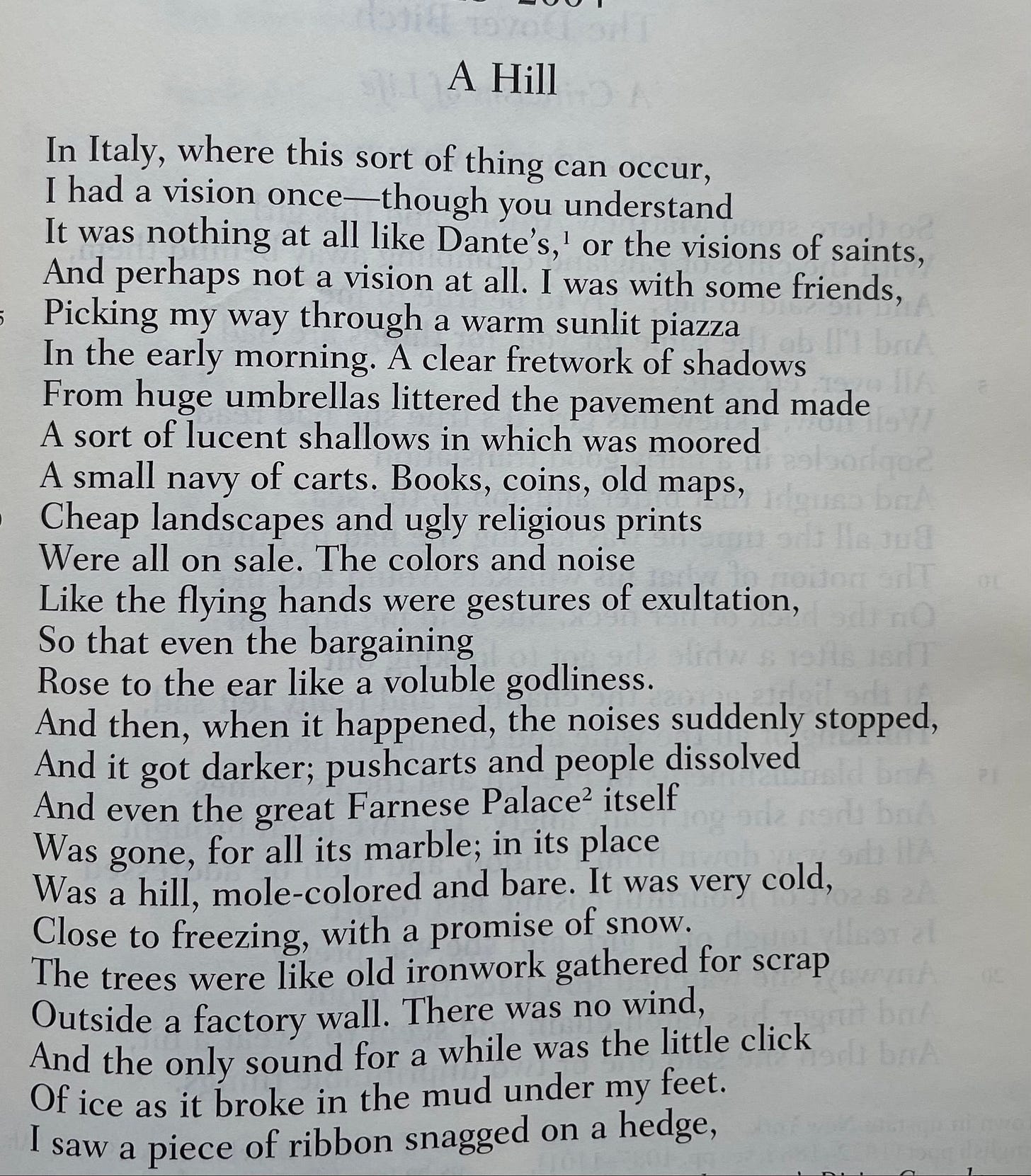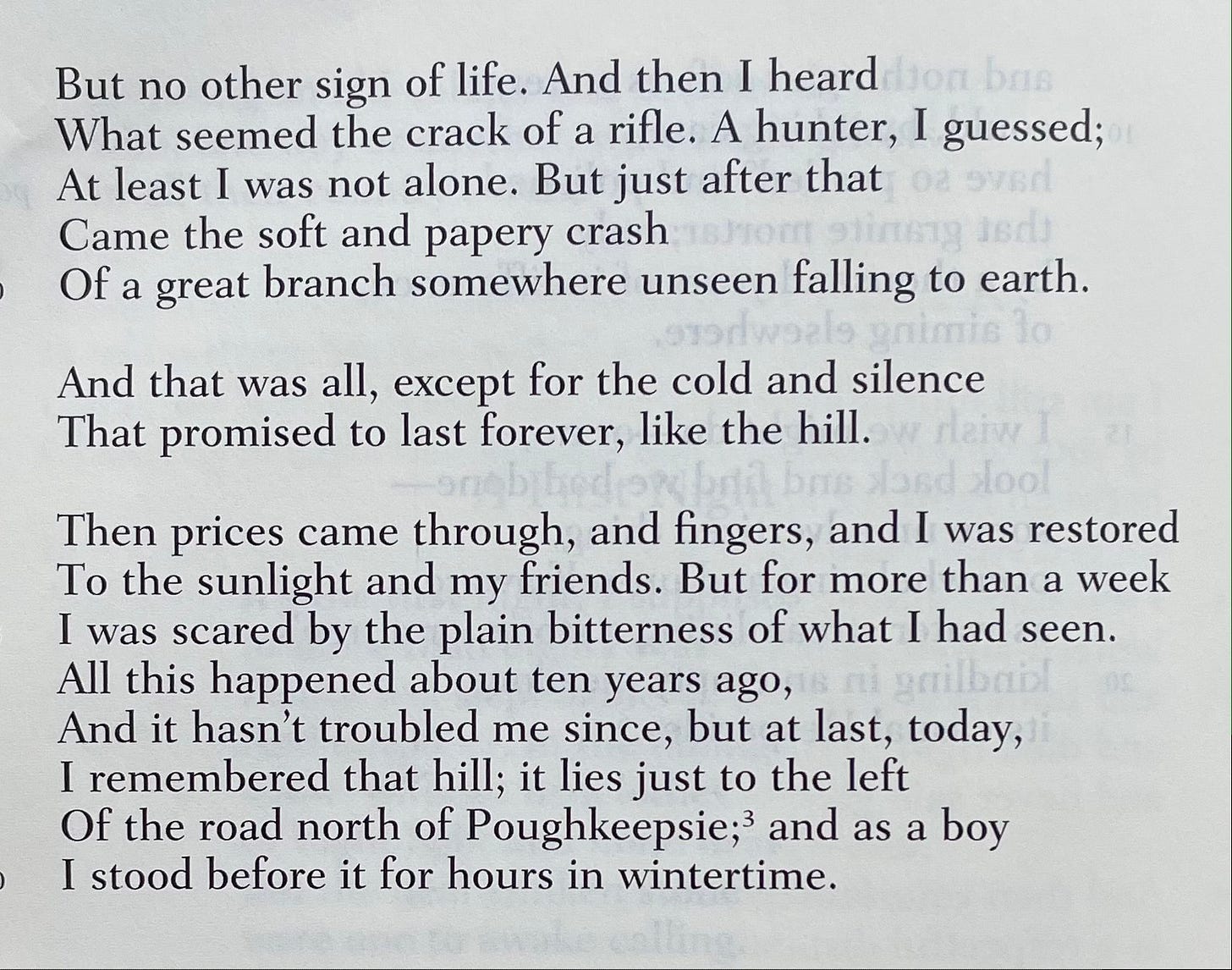This essay was suggested by Carole Symer. If you have a suggestion for an essay topic please let me know in the comments.
No one is sure what time actually is: Is it something physical? Something psychological? The measurement of the electronic transition frequency of caesium atoms called “seconds”? Is it a line? A circle? Dilated? Stretched?
Some poems can stretch out time, or pause it. This technique has partly to do with rhetorical structure, and partly to do with voice and gesture: the poet seamlessly switches lenses from telescopic to microscopic and back again.
Human perception can be distorted by time and vice versa, and in moments of individual and collective trauma, the motion of time can become either unreliable or indefatigable.
In my upcoming class Poetry as a Tool to Understand Our Moment, May 22nd 6:30-8:00 pm (EST) https://www.seansingerpoetry.com/join-book-club I’ll be touching on the topic of how poets address humanitarian and political crisis by focusing or unfocusing on discrete moments. Here are some additional examples beyond what the class will address:
Anthony Hecht’s “A Hill”
“A Hill” begins with a promise of a vision, then qualifies it with “and perhaps not a vision at all.” When the speaker is transported to the hill, the reader receives the sensation of motion primarily through sound.
The poem’s first turn, “And then, when it happened, the noises suddenly stopped” continues the long first stanza to the second turn, “And that was all, except for the cold and silence.”
The speaker returns to the present moment when he hears the “soft and papery crash of a great branch.” The metaphor of the hill—its upward slope to an apex and then down again—also brings him back to Italy, to the piazza, to a specific memory: standing for hours before the hill as a boy on a road north of Poughkeepsie.
In fact, the awareness of the metaphor occurred in the speaker’s childhood. Time in the poem moves through attention to sound, first from “noise like flying hands,” then “a voluble godliness,” then “the noises suddenly stopped,” then “the only sound for a while was the little click,” then “the soft, papery crash.” The silence in the short middle stanza is the hinge between past and present, Italy (past), Poughkeepsie (distant past), and wherever the speaker in the present moment is.
Keep reading with a 7-day free trial
Subscribe to The Sharpener to keep reading this post and get 7 days of free access to the full post archives.





